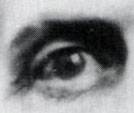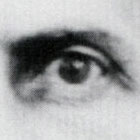SHALL WE MEET
IN MUSIC?
A cut from a book called
WHEREVER WE ARE
WHEN WE COME
TO THE END
A DRUNK HACKS
AT THE STRINGS
Richard BARNETT


Timed to coincide with the 100-year anniversary of the German publication of Ludwig WITTGENSTEIN’s TRACTATUS LOGICO PHILOSOPHICUS, Richard BARNETT’s WHEREVER WE ARE WHEN WE COME TO THE END is an experiment in form, and a poetic fantasia on logic, love and war.
‡
SPRING 1916—Ludwig WITTGENSTEIN is on his way to the Eastern Front. At the outbreak of the First World War this strange, intense, immensely wealthy young man volunteered as a private soldier in an Austro-Hungarian regiment, serving in some of the most brutal battles of the conflict, and carrying notes for a future book in his backpack. After the war, in 1921, WITTGENSTEIN would publish his terse, gnomic masterpiece of modern philosophy, the TRACTATUS, in which the young WITTGENSTEIN would attempt to identify the relationship between language, logic and reality. Fragmented into a series of numbered, declarative statements across seven core propositions, BARNETT takes his inspiration from the form of the TRACTATUS in an intense and creative exploration of WITTGENSTEIN’s formative experiences of WWI through an exploration of his conflicts: words and silence, violence and grief, time and eternity.
Order the book direct
from the publisher here.

6. He fell.
6.01. His plane broke up. He fell five thousand feet.
(No space for parachutes.)
6.011. Everything is happening at once.
He is falling and I am not holding him.
(Quite another world.)
6.0111. Is there no domain outside the facts?
6.23. There is so little left to say.
His ghost keeping distance, translucent with longing.
6.01. His plane broke up. He fell five thousand feet.
(No space for parachutes.)
6.011. Everything is happening at once.
He is falling and I am not holding him.
(Quite another world.)
6.0111. Is there no domain outside the facts?
Descending chords. A drunk hacks at the strings.
6.1. Shall we meet in music?
We shall not meet in music.
We shall not meet.
He is falling and I am not holding him.
I throw myself after him.
I fight lithe death, his hide comes loose in handfuls.
6.11. I reach after him. I am gravity’s angel.
He clutches at the last rung. He slips.
(The agony of nothing called back to something.)
He is falling and I am not holding him.
6.12. What is mirrored in language I cannot use language to express.
If I have said everything I am left with the unspeakable.
He is falling and I am not holding him.
We shall not meet in music.
We shall not meet.
He is falling and I am not holding him.
I throw myself after him.
I fight lithe death, his hide comes loose in handfuls.
6.11. I reach after him. I am gravity’s angel.
He clutches at the last rung. He slips.
(The agony of nothing called back to something.)
He is falling and I am not holding him.
6.12. What is mirrored in language I cannot use language to express.
If I have said everything I am left with the unspeakable.
He is falling and I am not holding him.
Is there no domain outside the facts?
Americans, now, and tanks.
(Lemberg, though, is still in our hands.)
Americans, now, and tanks.
(Lemberg, though, is still in our hands.)
6.2. Salzburg station. Waiting for a train up into the Salzkammergut.
(Lieutenant LJJ Wittgenstein, First Battery, Eleventh Mountain
Artillery Regiment, Imperial and Royal Austro-Hungarian Army,
Silver Medal for Valour, Military Merit Medal with Swords.)
6.21. Tolstoy in my pocket, and a pistol.
A sharper body than Davy ever knew.
(Lieutenant LJJ Wittgenstein, First Battery, Eleventh Mountain
Artillery Regiment, Imperial and Royal Austro-Hungarian Army,
Silver Medal for Valour, Military Merit Medal with Swords.)
6.21. Tolstoy in my pocket, and a pistol.
A sharper body than Davy ever knew.
6.22. The express screams through. The noise!
Out of the steam, on the platform beside me, Uncle Paul.
Out of the steam, on the platform beside me, Uncle Paul.
Ludwig! You’re alive.
How are you, my boy?
How are you, my boy?
6.221. I’m alive, Uncle Paul, and this seems a failure.
My first and only world is gone.
My first and only friend has gone, and taken half my life with him.
Between us a moment only and a leap—only a leap.
My first and only world is gone.
My first and only friend has gone, and taken half my life with him.
Between us a moment only and a leap—only a leap.
Just what this family needs: another corpse.
Come with me to Hallein, Ludwig, and we’ll sit by the stove and talk.
Come with me to Hallein, Ludwig, and we’ll sit by the stove and talk.
6.23. There is so little left to say.
Then we’ll sit and be silent.
6.231. What comes after the silence?
Life.
Ludwig, please don’t die of devotion,
don’t die of the hard must.
It achieves so little.
Ludwig, please don’t die of devotion,
don’t die of the hard must.
It achieves so little.
6.232. How do you bear it? How do you go on?
A question without an answer.
I go on.
I go on.
6.233. I want to go on.
Is it enough?
Is it enough?
If this is all there is, it is more than enough.
Do you need to be told?
Do you need to be told?
6.24. Always.
Come to Hallein, Ludwig.
The sun will rise tomorrow if you will.
I’ll buy the tickets. Let me carry your haversack.
God says: the good life is the life of wonder.
The sun will rise tomorrow if you will.
I’ll buy the tickets. Let me carry your haversack.
God says: the good life is the life of wonder.
6.25. The wonder of it.
(The logical form of an angel, in a shabby sable coat)
6.26. I will learn to go on.
6.261. I will learn to lack, to wait, to live by longing.
(The logical form of an angel, in a shabby sable coat)
6.26. I will learn to go on.
6.261. I will learn to lack, to wait, to live by longing.
A preliminary philosophy of peace: longing is meaning.
6.262. There is work for me, and grief.
(A divine condition of not reaching.)
6.2621. God requires my forgiveness and I his.
(A divine condition of not reaching.)
6.2621. God requires my forgiveness and I his.
His ghost keeping distance, translucent with longing.
6.263. Doubting has an end, but not yet.
6.27. What can be said at all can be said clearly, and what is left to say
is just this.
7. The world is all that is the case—
6.27. What can be said at all can be said clearly, and what is left to say
is just this.
7. The world is all that is the case—
everything we can and cannot bear.
Richard BARNETT is a poet and a historian. SEAHOUSES, his first collection, came out with Valley Press in 2015, and was shortlisted for the Poetry Business Prize. He taught the history of science and medicine at Cambridge, UCL, and Oxford for more than a decade, and in 2011 he received one of the first Wellcome Trust Engagement Fellowships. His history books include MEDICAL LONDON, a BBC Radio 4 Book of the Week, and THE SICK ROSE, an international bestseller.
